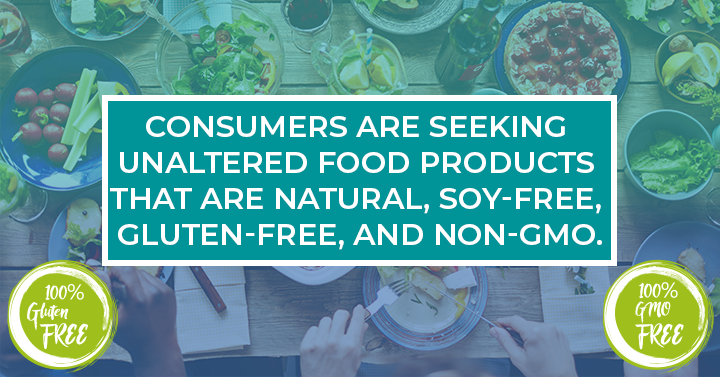Driven by health-conscious consumers, social influencers, technology, people who are increasingly adopting flexitarian diets, millennials, and the rise of Gen Z, food and beverage indies are witnessing double- and triple-digit growth rates. Some of the key product types offered by these indie companies include protein-based, meat-alternative, and plant-based products.
With an increasing emphasis on wellness trends, today’s consumers are seeking unaltered food products that are natural, soy-free, gluten-free, and non-GMO. Food indie companies are taking this into consideration and laying the foundation for future trends, including meat-alternative products, meal- replacement products, meal kits, high-protein snacks/drinks, and plant-based products. They’re also disrupting the food and beverage industry through unique brand positioning, innovative products, sustainable packaging, and distribution expansion.
Notable brands such as Tadah, Spindrift, Chef’s Cut, Meatless Farm, and Heüra recorded exceptional growth in 2019. These companies increased their market presence through e-commerce as well as brick-and-mortar stores. Retailers, including mass merchandisers and department stores, provide shelf space to burgeoning brands to diversify their product offerings; this will contribute to the growth of new brands in the market. These disruptors are not only gaining consumer interest, but are also strongly followed by private-equity investors. Niche indie brands such as Bright Farms, Impossible Foods, and Revolution Foods have successfully raised over $100 million, to date, from investors.
Our new Food Indies: Analysis of Booming Independent Food and Beverage Companies report, scheduled for publication in September 2020, includes a detailed analysis of 50 fast-growing food indie brands in the United States and Europe. Each company is profiled to include in-depth information on its performance, key offerings, distribution, marketing activities, and outlook.

